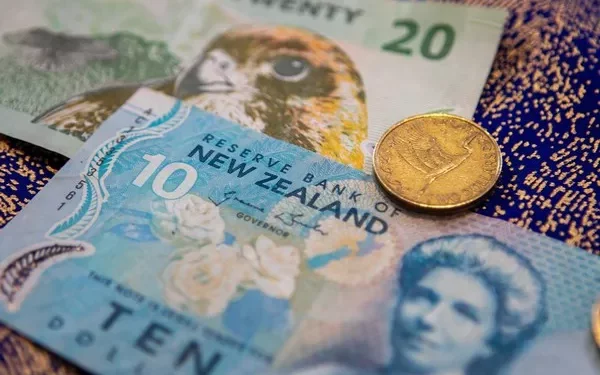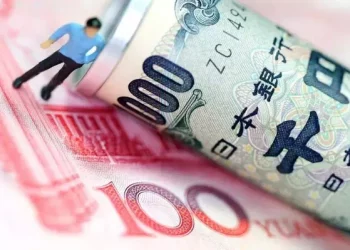The foreign exchange market, often referred to as Forex or FX, is the largest and most liquid financial market in the world. It operates 24 hours a day, five days a week, facilitating the trading of currencies globally. Among the major currencies traded, the Australian dollar (AUD) holds a significant position due to Australia’s stable economy, abundant natural resources, and the country’s integration into global trade.
If you’re planning to buy Australian dollars—whether for travel, investment, or trading purposes—it’s essential to understand the nuances of currency exchange, including where and how to get the best rates. This article explores various options for purchasing AUD, the factors influencing exchange rates, and tips to ensure you secure the most favorable deal.
Understanding the Australian Dollar
The Australian dollar, abbreviated as AUD and often represented by the symbol A$, is one of the world’s top traded currencies. It is heavily influenced by Australia’s economic fundamentals, such as commodity prices, interest rates, and trade relationships, particularly with China.
The AUD is categorized as a “commodity currency,” meaning its value is closely tied to the prices of raw materials like iron ore, coal, and gold, which are key Australian exports. This makes the AUD highly responsive to shifts in global demand for commodities, as well as geopolitical developments.
Before diving into where to buy Australian dollars, it’s important to grasp the basics of currency conversion and how exchange rates are determined. Exchange rates fluctuate continuously due to changes in supply and demand, economic data releases, geopolitical events, and central bank policies. As a buyer of AUD, understanding these dynamics can help you make better timing and purchasing decisions.
Options for Buying Australian Dollars
1. Banks
Banks are one of the most traditional and widely used channels for currency exchange. Most major banks offer the service of buying and selling foreign currencies, including AUD.
Advantages:
Security: Banks are highly regulated institutions, making them a safe option.
Accessibility: Many banks allow you to exchange currency online, through their apps, or at physical branches.
Multi-service offerings: Some banks offer additional features like international wire transfers or multi-currency accounts.
Disadvantages:
Exchange rate markup: Banks often apply a significant markup to exchange rates, making their rates less competitive than other providers.
Service fees: Transaction fees for exchanging currency at a bank can further reduce cost-efficiency.
When to Choose Banks: Banks are a good option for those prioritizing convenience and security over cost. If you already have an account with the bank, the process may be streamlined.
2. Currency Exchange Bureaus
Currency exchange bureaus, also known as money changers, specialize in exchanging currencies. They are common in airports, shopping malls, and major tourist destinations.
Advantages:
No account needed: Unlike banks, you don’t need a pre-existing relationship with a money changer.
Instant transactions: The process is quick and simple, often involving just cash and identification.
Disadvantages:
Higher fees at airports: Currency exchange counters at airports are notorious for offering poor rates due to convenience fees.
Inconsistent rates: Rates can vary widely between bureaus, requiring you to shop around for the best deal.
When to Choose Currency Bureaus: These are ideal for small, last-minute transactions or when you need physical cash quickly.
3. Online Currency Exchange Platforms
Online platforms have revolutionized the way people buy foreign currencies. Companies like Wise (formerly TransferWise), OFX, and CurrencyFair offer online services to exchange and transfer currencies at competitive rates.
Advantages:
Competitive rates: Online platforms usually offer rates close to the mid-market rate, with lower markups compared to banks.
Transparency: Fees and rates are displayed upfront, allowing for informed decisions.
Convenience: Transactions can be completed from the comfort of your home.
Disadvantages:
Processing time: Depending on the platform, it may take a few hours to a couple of days for the funds to be exchanged and transferred.
Limited cash options: Online services are best suited for digital transfers rather than obtaining physical cash.
When to Choose Online Platforms: These platforms are an excellent choice for cost-conscious individuals and those making larger transactions.
4. Forex Brokers
For those trading currencies or making significant financial transactions, forex brokers provide specialized services. Brokers cater to traders looking to capitalize on short-term fluctuations in exchange rates.
Advantages:
Professional tools: Forex brokers offer advanced trading platforms and analytics tools.
Leverage: Traders can use leverage to amplify their exposure to currency movements.
Competitive spreads: Professional brokers often provide tight spreads for high-volume trades.
Disadvantages:
Complexity: Forex trading requires a good understanding of market dynamics and involves risks.
Not for physical cash: Brokers do not deal in physical currency.
When to Choose Forex Brokers: Forex brokers are ideal for active traders and investors rather than casual buyers of AUD.
5. Prepaid Travel Cards
If your primary need for AUD is travel, prepaid travel cards loaded with Australian dollars offer a secure and convenient alternative to cash.
Advantages:
Exchange rate lock-in: You can lock in an exchange rate at the time of loading the card, protecting against future fluctuations.
Ease of use: The card can be used for purchases and ATM withdrawals in Australia.
Safety: Prepaid cards reduce the risk of carrying large amounts of cash.
Disadvantages:
Fees: Some cards charge loading fees, ATM withdrawal fees, or inactivity fees.
Limited usage: Not all merchants accept prepaid cards.
When to Choose Prepaid Cards: These are a great option for travelers who want to manage spending in AUD while abroad.
Factors to Consider When Choosing a Provider
When deciding where to buy Australian dollars, consider the following factors:
Exchange Rate: Compare the rates offered by different providers to ensure you’re getting a competitive deal.
Fees: Pay attention to hidden fees, including transaction fees, ATM withdrawal charges, and service fees.
Convenience: Evaluate the ease of accessing the provider’s services, whether online or in person.
Volume of Exchange: Some providers offer better rates for larger transactions, so choose accordingly.
Timing: Exchange rates fluctuate. Monitoring trends and choosing the right time to buy can significantly impact the amount of AUD you receive.
Tips for Getting the Best Rates
Monitor Exchange Rate Trends: Use tools like exchange rate alerts or currency calculators to track when rates are favorable.
Avoid Airports: Airport kiosks typically have the worst rates. Plan ahead and exchange currency before traveling.
Bundle Transactions: If you need multiple currencies, some providers offer discounts for bulk exchanges.
Negotiate: At local currency exchange bureaus, don’t hesitate to ask for a better rate, especially for large transactions.
Consider Hedging: If you anticipate future AUD needs, consider financial products like forward contracts to lock in current rates.
Conclusion
The best place to buy Australian dollars depends on your specific needs, whether it’s for travel, investment, or trading. Banks, currency exchange bureaus, online platforms, forex brokers, and prepaid travel cards each offer unique advantages and disadvantages.
To get the best deal, focus on comparing rates, minimizing fees, and understanding your requirements. By planning ahead and leveraging modern tools like online platforms, you can maximize your purchasing power and avoid unnecessary expenses.
Whether you’re a traveler, investor, or forex trader, understanding the landscape of currency exchange is key to making informed and profitable decisions when buying Australian dollars.
Related Topics:
























